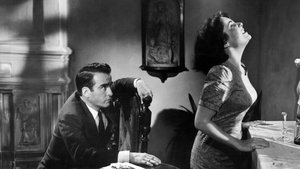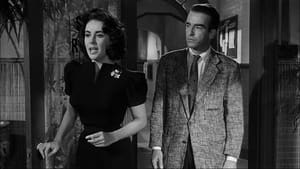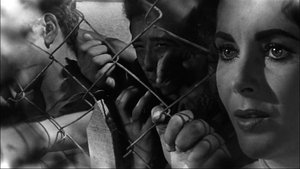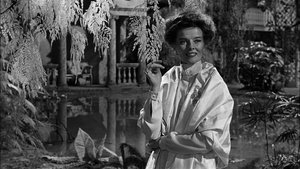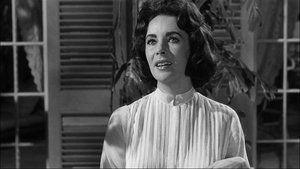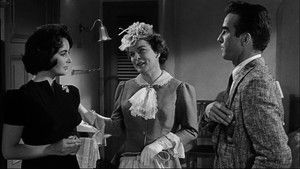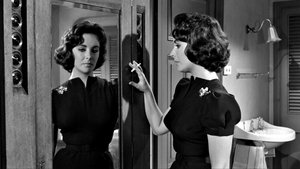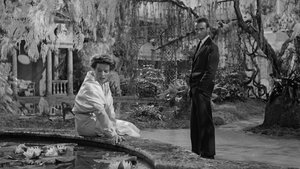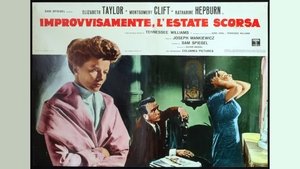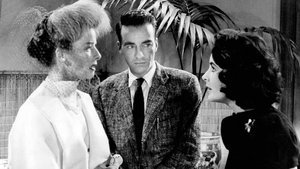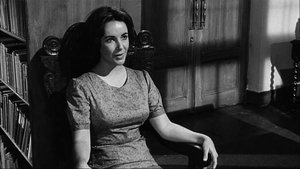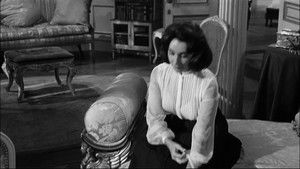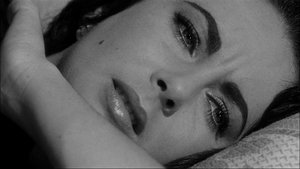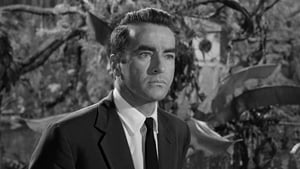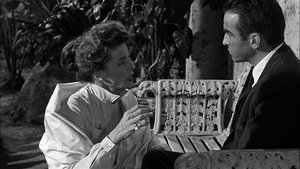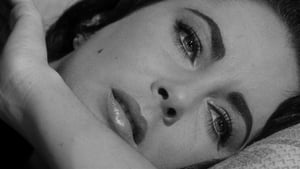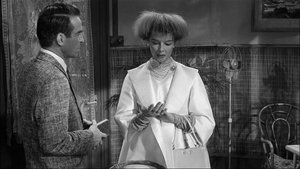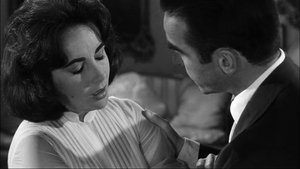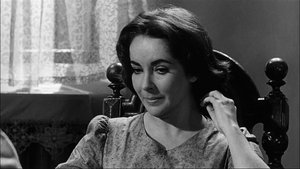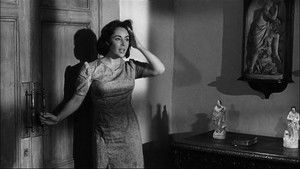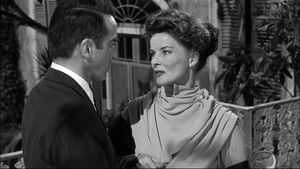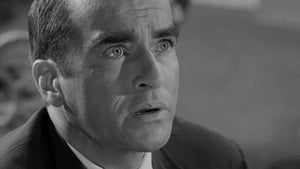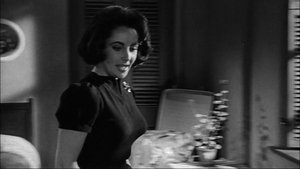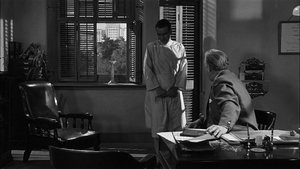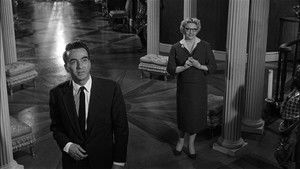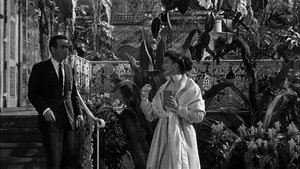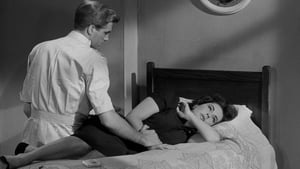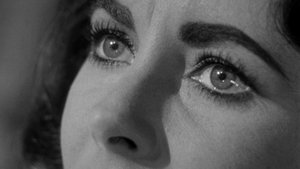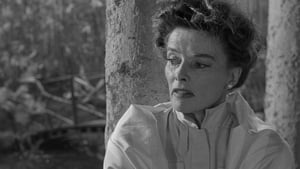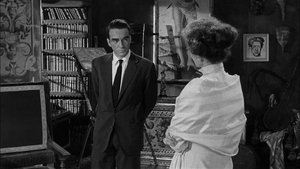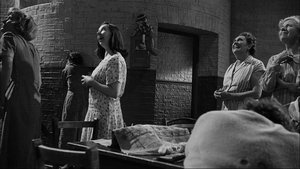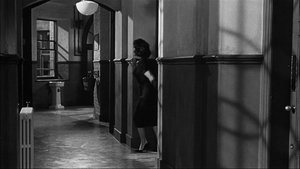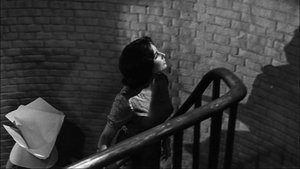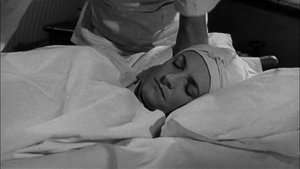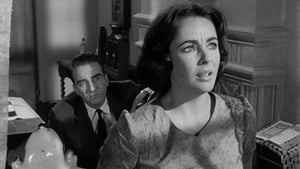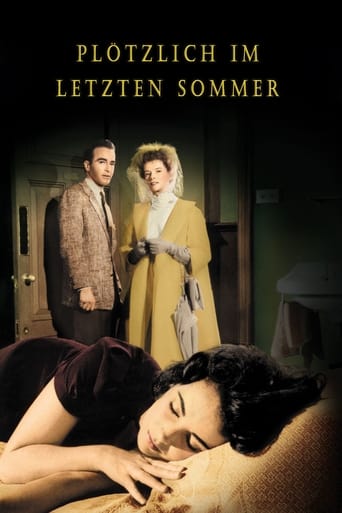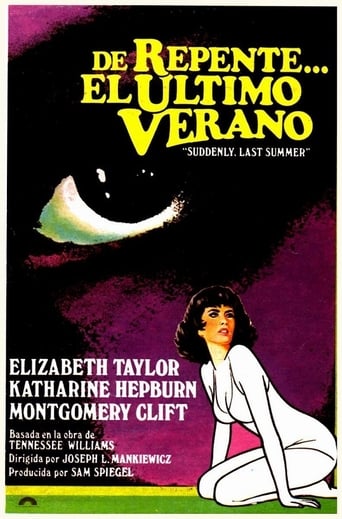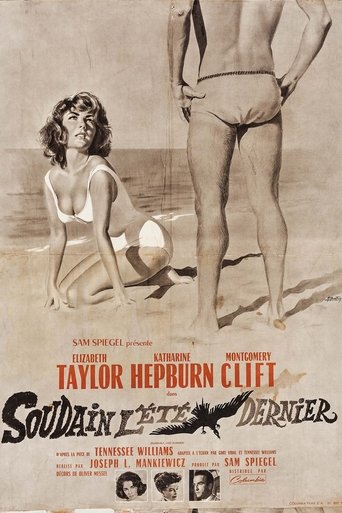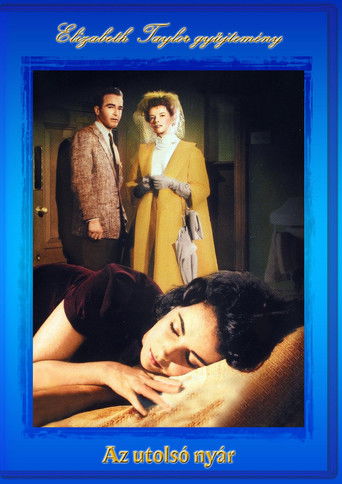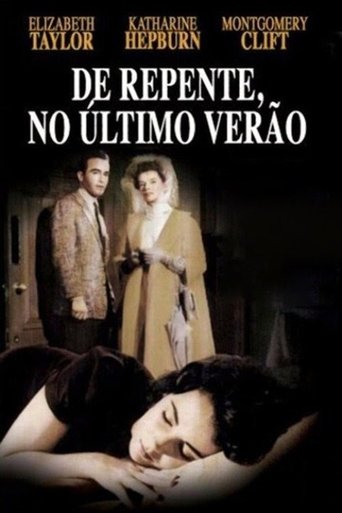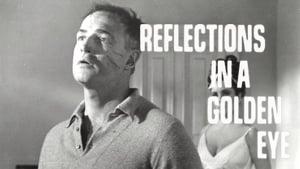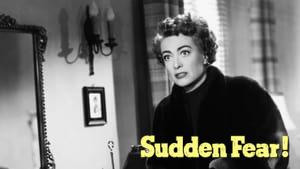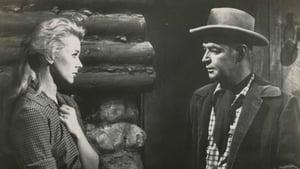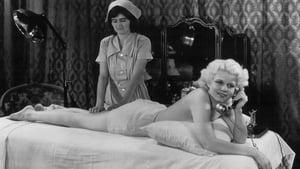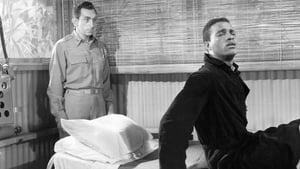
Suddenly, Last Summer
Suddenly, last summer, Cathy knew she was being used for something evil!
1959 | 114m | English
Popularity: 1 (history)
| Director: | Joseph L. Mankiewicz |
|---|---|
| Writer: | Tennessee Williams, Gore Vidal |
| Staring: |
| The only son of wealthy widow Violet Venable dies while on vacation with his cousin Catherine. What the girl saw was so horrible that she went insane; now Mrs. Venable wants Catherine lobotomized to cover up the truth. | |
| Release Date: | Dec 22, 1959 |
|---|---|
| Director: | Joseph L. Mankiewicz |
| Writer: | Tennessee Williams, Gore Vidal |
| Genres: | |
| Keywords | operation, hunger, lie, post, widow, turtle, dysfunctional family, memory, mental institution, psychiatrist, doctor patient relationship, lobotomy, brain surgery |
| Production Companies | Columbia Pictures, Horizon Pictures, Academy Pictures Corporation, Camp Films |
| Box Office |
Revenue: $9,000,000
Budget: $3,000,000 |
| Updates |
Updated: Oct 05, 2025 Entered: Apr 13, 2024 |
| Name | Character |
|---|---|
| Elizabeth Taylor | Catherine Holly |
| Katharine Hepburn | Violet Venable |
| Montgomery Clift | Dr. Cukrowicz |
| Albert Dekker | Lawrence Hockstader |
| Mercedes McCambridge | Grace Holly |
| Gary Raymond | George Holly |
| Mavis Villiers | Miss Foxhill |
| Patricia Marmont | Nurse Benson |
| Joan Young | Sister Felicity |
| Maria Britneva | Lucy |
| Sheila Robbins | Dr. Hockstader's Secretary |
| David Cameron | Young Blonde Intern |
| Grace Denbigh Russell | Asylum Patient (uncredited) |
| Brenda Dunrich | Nurse (uncredited) |
| Eddie Fisher | Street Urchin (uncredited) |
| Frank Merlo | Audience Member at Operation (uncredited) |
| Sheila Raynor | Mother of Young Patient (uncredited) |
| Beatrice Shaw | Elderly Lady (uncredited) |
| Florence Stark | Patient (uncredited) |
| Julián Ugarte | Sebastian Venable (uncredited) |
| Gore Vidal | Audience Member at Operation (uncredited) |
| Rita Webb | Asylum Patient (uncredited) |
| Sandra White | Young Patient (uncredited) |
| Ian Wilson | Patient (uncredited) |
| Roberta Woolley | Nurse (uncredited) |
| Name | Job |
|---|---|
| Buster Ambler | Sound Recordist |
| William Hornbeck | Editorial Consultant, Editor |
| William Kellner | Art Direction |
| Basil Mannin | Scenic Artist |
| Jean Osborne | Unit Publicist |
| Bill Kirby | Production Supervisor |
| Joan White | Hairstylist |
| Bluey Hill | Assistant Director |
| Peter Dukelow | Construction Manager |
| Fred Lacey | Property Buyer |
| James Sawyer | Draughtsman |
| Thomas Stanford | Editor |
| Michael Walter | Key Grip |
| Oliver Messel | Costume Design, Production Design |
| Scott Slimon | Set Decoration |
| Eileen Bates | Hairdresser |
| Patrick Clayton | Second Assistant Director |
| Martin Atkinson | Draughtsman |
| Terence Morgan | Set Dresser |
| Jack Shampan | Draughtsman |
| John Cox | Sound |
| Buxton Orr | Conductor, Original Music Composer |
| Fred Mannin | Scenic Artist |
| Mike Rutter | Clapper Loader |
| Peter Thornton | Sound Editor |
| David Aylott | Makeup Artist |
| Charles Nash | Assistant Makeup Artist |
| Jake Wright | Second Assistant Director |
| Jimmy James | Props |
| Francisco Prósper | Settings |
| Tony Woollard | Draughtsman |
| Eric Vincent | Sound |
| Archie Dansie | Electrician |
| Joan Ellacott | Costume Design |
| Ron Pope | Assistant Editor |
| Elaine Schreyeck | Continuity |
| Tom Howard | Visual Effects |
| Ceri Davies | Focus Puller |
| Charles Guerin | Wardrobe Master |
| Lily Payne | Wardrobe Assistant |
| John Jympson | Editorial Services |
| Roger Good | Location Manager |
| Norma Garment | Production Secretary |
| Ray Jones | Grip |
| Norman Hartnell | Costume Design |
| May Walding | Wardrobe Master |
| John Crome | Assistant Editor |
| Midge Warnes | Production Secretary |
| Joseph L. Mankiewicz | Director |
| Tennessee Williams | Screenplay, Theatre Play |
| Gore Vidal | Screenplay |
| Malcolm Arnold | Original Music Composer |
| Jack Hildyard | Director of Photography |
| Jean Louis | Costume Design |
| Gerry Fisher | Camera Operator |
| Name | Title |
|---|---|
| Sam Spiegel | Producer |
| Organization | Category | Person | |
|---|---|---|---|
| Academy Awards | Best Director | Joseph L. Mankiewicz | Nominated |
| Academy Awards | Best Supporting Actress | Louise Lasser | Nominated |
Popularity History
| Year | Month | Avg | Max | Min |
|---|---|---|---|---|
| 2024 | 4 | 16 | 24 | 12 |
| 2024 | 5 | 24 | 36 | 15 |
| 2024 | 6 | 19 | 34 | 9 |
| 2024 | 7 | 27 | 44 | 14 |
| 2024 | 8 | 20 | 49 | 11 |
| 2024 | 9 | 15 | 24 | 10 |
| 2024 | 10 | 14 | 21 | 9 |
| 2024 | 11 | 12 | 22 | 7 |
| 2024 | 12 | 11 | 15 | 7 |
| 2025 | 1 | 12 | 20 | 8 |
| 2025 | 2 | 9 | 14 | 3 |
| 2025 | 3 | 5 | 15 | 1 |
| 2025 | 4 | 1 | 1 | 1 |
| 2025 | 5 | 1 | 1 | 1 |
| 2025 | 6 | 1 | 1 | 1 |
| 2025 | 7 | 1 | 2 | 0 |
| 2025 | 8 | 1 | 1 | 0 |
| 2025 | 9 | 2 | 2 | 1 |
| 2025 | 10 | 2 | 4 | 2 |
| 2025 | 11 | 2 | 4 | 1 |
| 2025 | 12 | 2 | 4 | 0 |
| 2026 | 1 | 1 | 2 | 0 |
Trending Position
| Year | Month | High | Avg |
|---|---|---|---|
| 2025 | 10 | 319 | 634 |
Talk is never cheap when sourced from Tennessee Williams. Millionairess, Violet Venable is obsessed with her now dead son, Sebastian. Sebastian met his untimely end whilst on vacation with his cousin Catharine, an end that has sent Catharine almost to the edge of insanity. Violet, very concerned ... about Catharine and her hurtful ramblings, enlists brain surgeon Dr. Cukrowicz to see if he will perform a lobotomy on the poor girl, but as Cukrowicz digs deeper, motives and facts come crashing together to reveal something far more worrying. As one expects from a Tennessee Williams adaptation, this picture is very talky, perhaps borderline annoyingly so? Yet it has to be said that for those willing to invest the time with it, the pay off is well worth the wait. Suddenly Last Summer is an odd mix of campy melodrama and Gothic horror leanings, a mix that personally doesn't quite hit all the intended spots. It could have been so different, though, for if Gore Vidal and Joseph Mankiewicz had been given free rein back in this day of code restrictions, well the picture would surely have been close to masterpiece status. This adaptation only gives us little snippets on which to feed, we are aware of the homosexuality of the departed Sebastian, and other hints that come our way include incest, sadism and dubious class issues, but ultimately such strong material is never fully formed. Elizabeth Taylor owns the picture as Catharine, sultry with heaving bosom, she does an excellent line in borderline nut case, all woe is me martyrdom and her final scenes are what pays the viewer off for their patience. Katharine Hepburn plays Violet and manages to chew the scenery and spit it out, it's an elegant performance but you really want more than we actually get! Montgomery Clift is the good doctor, not one of his better performances because he isn't asked to expand the character, just say his lines right, look baleful from time to time and play off Taylor's lead, job done really. It's a recommended film to a degree, certainly one that simmers with an almost oppressive feel, but if the film is one to revisit often? Well that's up for debate and dependent on the viewer's inclination towards dialogue driven films. 7/10
Howard Hawks defined a good film as “three good scenes and no bad ones.” Suddenly, Last Summer has four very good scenes dominated by one of the two great great actresses who play the leads – or, in one instance, both. These are long scenes but never boring, and we are at all times bolted to our ... seats, our eyes glued to the screen; Katharine Hepburn and Elizabeth Taylor give different, even contrasting performances – the one as a crazy, rich, old lady who feigns sanity, the other as a traumatized yet sane young woman who is “classified as violent” –, but the result is in either case nothing short of magnetic : we can’t stop looking at Taylor, and we dare not look away from Hepburn (after all of her scenes had been shot, Hepburn reportedly spat in the faces of director Joseph L. Mankiewicz and producer Sam Spiegel). We are drawn toward, and gravitate around, the two of them – not unlike the other characters (as few as one and as many as the rest of the main cast in any given scene), who are little more than bystanders, the actors who portray them VIP audience members fortunate enough to watch a pair of masters of the craft from up-close. Actually, there is one other presence looming large over the proceedings – that of Sebastian Venable, Hepburn’s only son and Taylor’s cousin, whose implied homosexuality Hepburn hopes to cover up by having Taylor lobotomized by Montgomery Clift’s neurosurgeon. As he died before the events of the film, Sebastian is oft-mentioned but never seen other than in glimpses while Taylor flashbacks to the titular last summer. This is not a bad scene, but a good scene with some bad in it; it’s not a full-on flashback with a voice-over narration as much as it is a monologue with visual aids that are unnecessary – for one thing, they are absent from Tennessee Williams’s stage play, and here they detract from the performance; the actress playing the role, whoever it may be, should be able – and Liz most certainly was – to create the imagery with her own language, both verbal and facial. Moreover, there are a couple of background details in the flashbacks that don’t make any sense; for example, a skeleton that becomes an old woman in the next shot – something like this is meant to be a part the character’s recollection of past events, but she herself takes no notice of it, and the people listening to her have no possible way of knowing it’s there at all; the question, then, is why, indeed, is it there? Is Mankiewicz trying to tell us something about her subconscious mind? (and if so, what exactly?). Or was he the one subconsciously – and, thank God, unsuccessfully – trying to sabotage the film? I know I wouldn’t put it past a Mankiewicz.



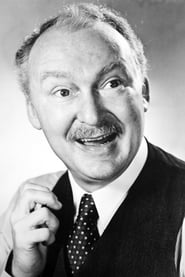
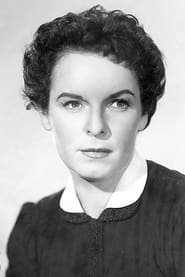

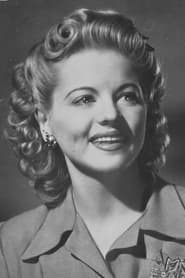



![Suddenly, Last Summer (1959) ORIGINAL TRAILER [HD 1080p]](/extra_thumbs/sHAkalCkrLM.jpg)

